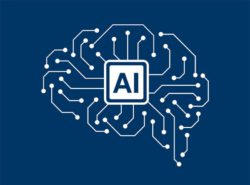AI Marketing: Take Advantage of Artificial Intelligence Strategies
AI marketing is a powerful and integral component of the larger Metaverse, which represents a virtual reality-based digital universe where users can interact with each other and digital objects in real-time. As the Metaverse expands, AI marketing plays a vital role in facilitating personalized and engaging experiences for users while enabling businesses to leverage data-driven insights and automation to drive targeted marketing campaigns.
In the Metaverse, AI marketing leverages advanced algorithms, machine learning, natural language processing, computer vision, and other to gather, analyze, and interpret vast amounts of user data. This data includes user preferences, behavior, interactions, and even biometric data, which allows AI systems to understand and predict user needs and preferences.
One of the primary objectives of AI marketing in the Metaverse is to provide highly personalized experiences. AI algorithms can analyze user data to generate accurate user profiles, segment users based on various criteria, and deliver tailored content and recommendations. For instance, an AI-powered avatar or virtual assistant can understand a user’s preferences and recommend relevant products, services, or experiences within the Metaverse. These personalized recommendations enhance user engagement and increase the likelihood of conversions.
Furthermore, AI marketing in the Metaverse enables businesses to automate and optimize their marketing campaigns. AI algorithms can analyze user engagement patterns, track ad performance, and make real-time adjustments to ensure maximum effectiveness. Automated chatbots and virtual assistants can handle customer inquiries and provide immediate responses, enhancing customer service and satisfaction.
AI marketing also extends to immersive advertising within the Metaverse. Businesses can leverage AI algorithms to analyze user behavior and preferences to deliver highly targeted and interactive ads. For example, virtual billboards, sponsored events, or branded objects within the virtual world can dynamically adapt based on user interactions and preferences, maximizing the impact and relevance of the advertising experience.
Additionally, AI marketing in the Metaverse relies on sentiment analysis and emotion detection algorithms to gauge user reactions and sentiment towards products, services, or experiences. This enables businesses to measure the success of their marketing campaigns in real-time and make data-driven decisions to improve their offerings.
Privacy and data security are significant concerns in the Metaverse, and AI marketing must adhere to strict ethical guidelines and regulations. User consent, data anonymization, and transparent data practices are essential to ensure user trust and maintain the integrity of AI-driven marketing initiatives.
In conclusion, AI marketing is a crucial component within the larger Metaverse ecosystem. It leverages AI technologies to gather and analyze user data, deliver personalized experiences, automate marketing campaigns, optimize advertising, and measure campaign effectiveness. As the Metaverse evolves, AI marketing will continue to play a central role in driving user engagement, enhancing brand experiences, and enabling businesses to thrive within this immersive digital realm.
Also read: Your Guide To Metaverse Marketing, “The Future Of Retail”
What is Artificial intelligence?
Artificial intelligence (AI) refers to the development and deployment of computer systems that can perform tasks that typically require human intelligence. It is a branch of computer science that aims to create intelligent machines capable of simulating human cognitive processes, such as learning, reasoning, problem-solving, perception, and language understanding.
AI systems are designed to process large amounts of data, extract patterns and insights, and make informed decisions or take actions based on that information. They rely on algorithms and models that mimic human intelligence to varying degrees, with the ultimate goal of achieving human-level or even superhuman performance in specific domains.
There are various types and approaches to AI, including:
1. **Narrow AI**: Also known as weak AI, narrow AI refers to AI systems designed to perform specific tasks or functions. These systems are trained and optimized for a particular domain, such as voice recognition, image classification, natural language processing, or autonomous driving. Examples of narrow AI applications include virtual assistants like Siri and Alexa, recommendation systems, and fraud detection systems.
2. **General AI**: General AI aims to develop machines that possess the ability to understand, learn, and apply knowledge across a wide range of tasks similar to human intelligence. This type of AI would have the capacity to adapt to new situations, acquire new skills, and perform tasks that require reasoning, abstraction, and creativity. Achieving true general AI remains a significant challenge and an active area of research.
3. **Machine Learning**: Machine learning is a subset of AI that focuses on algorithms and models that enable computers to learn from data and make predictions or decisions without explicit programming. It involves training AI systems on large datasets, allowing them to identify patterns, correlations, and statistical relationships. This training process helps machines improve their performance and make accurate predictions or classifications.
4. **Deep Learning**: Deep learning is a subfield of machine learning that uses artificial neural networks inspired by the structure and function of the human brain. Deep learning models, known as deep neural networks, consist of multiple layers of interconnected nodes (neurons). These networks can learn hierarchical representations of data, enabling them to automatically extract features and patterns from raw input. Deep learning has achieved remarkable breakthroughs in areas such as image and speech recognition.
5. **Cognitive Computing**: Cognitive computing combines AI techniques with cognitive science to create systems that can simulate human thought processes. These systems aim to understand, reason, and interact with humans in a more natural and intuitive manner. Cognitive computing involves natural language processing, knowledge representation, reasoning, and machine learning to provide context-aware and human-like interactions.
The applications of AI are vast and continue to expand across various industries, including healthcare, finance, manufacturing, transportation, entertainment, and more. AI systems are being used to improve medical diagnosis, automate repetitive tasks, optimize supply chains, develop self-driving cars, enhance customer experiences, and even create art and music.
However, it is essential to address ethical considerations and potential risks associated with AI, such as data privacy, bias, job displacement, and the responsible use of autonomous systems. Ongoing research and the establishment of ethical frameworks and regulations are crucial to harness the potential of AI while mitigating its potential downsides.
In summary, artificial intelligence encompasses a broad range of technologies and techniques that enable computers to simulate human intelligence and perform tasks traditionally requiring human cognitive abilities. From narrow AI applications to the pursuit of general AI, AI is transforming industries and shaping the future of technology and society.
What is AI Marketing?
AI marketing, also known as artificial intelligence marketing, refers to the application of artificial intelligence techniques and technologies in the field of marketing. It involves leveraging AI algorithms, machine learning, data analytics, natural language processing, and other AI tools to analyze vast amounts of data, gain insights, automate processes, and deliver personalized marketing experiences to customers.
AI marketing utilizes advanced algorithms to process and interpret large datasets, including customer behavior, preferences, demographics, purchase history, social media interactions, and other relevant data points. By analyzing this data, AI systems can generate valuable insights and predictions that enable marketers to make informed decisions and tailor marketing strategies accordingly.
There are several key areas where AI marketing plays a significant role:
1. **Customer Insights and Segmentation**: AI algorithms can analyze customer data to create detailed customer profiles and segment customers based on various criteria. This enables marketers to understand customer preferences, behaviors, and needs at a granular level, helping them develop targeted marketing campaigns and deliver personalized experiences.
2. **Personalization**: AI marketing enables marketers to deliver highly personalized content, recommendations, and offers to individual customers. By leveraging AI algorithms, businesses can analyze customer data in real-time and provide tailored experiences based on past interactions, preferences, and predictive analytics. This level of personalization enhances customer engagement and improves conversion rates.
3. **Predictive Analytics**: AI marketing utilizes predictive analytics to forecast customer behavior, anticipate trends, and identify potential opportunities. By analyzing historical data and patterns, AI algorithms can make accurate predictions about customer preferences, purchase intent, and even churn likelihood. This allows marketers to proactively optimize their marketing strategies and campaigns.
4. **Chatbots and Virtual Assistants**: AI-powered chatbots and virtual assistants have become increasingly popular in marketing. These intelligent systems can interact with customers, answer inquiries, provide recommendations, and offer personalized assistance 24/7. By leveraging natural language processing and machine learning, chatbots and virtual assistants can deliver efficient and personalized customer service, resulting in improved customer satisfaction and reduced response times.
5. **Content Generation and Optimization**: AI marketing can automate and optimize content generation processes. AI algorithms can analyze vast amounts of data, including user-generated content, customer feedback, and social media trends, to generate compelling and engaging content. This includes automated content creation, content curation, and content optimization to improve search engine rankings and increase brand visibility.
6. **Ad Targeting and Optimization**: AI marketing enables targeted ad delivery and optimization. AI algorithms analyze customer data and behavior to identify the most relevant target audience segments for specific ads. This ensures that advertisements are displayed to the right people at the right time, increasing the chances of engagement and conversions. Additionally, AI algorithms can continuously monitor ad performance and adjust targeting parameters in real-time to optimize campaign effectiveness.
7. **Marketing Automation**: AI marketing automates various marketing tasks and processes, freeing up time for marketers to focus on strategy and creativity. It can automate email marketing campaigns, social media scheduling, content distribution, and lead nurturing. By automating routine tasks, marketers can streamline their workflows, improve efficiency, and deliver consistent messaging across multiple channels.
AI marketing offers several benefits, including enhanced customer experiences, improved efficiency and productivity, better targeting and personalization, data-driven decision-making, and cost optimization. However, it’s important to ensure ethical use of AI marketing, including data privacy, transparency, and compliance with regulations.
In summary, AI marketing leverages artificial intelligence technologies and techniques to analyze data, gain insights, automate processes, and deliver personalized marketing experiences. By harnessing the power of AI, businesses can enhance customer engagement, optimize marketing campaigns, and drive better business outcomes in an increasingly data-driven and competitive marketing landscape.
Also read: Sesame Labs Raises $4.5 Million in Seed Funding Round to Fuel Growth of Web3 Marketing
Types of AI Marketing
AI marketing encompasses various types and applications that leverage artificial intelligence technologies to enhance marketing strategies and campaigns. Here are some of the key types of AI marketing:
1. **Personalization and Recommendation Systems**: Personalization is a core aspect of AI marketing. AI algorithms analyze customer data to generate personalized recommendations and experiences. These recommendation systems use machine learning techniques to understand customer preferences, behavior, and purchase history. They can suggest relevant products, services, content, or promotions based on individual customer profiles, increasing the chances of conversion and customer satisfaction.
2. **Predictive Analytics and Forecasting**: Predictive analytics involves using AI algorithms to analyze historical data and make predictions about future outcomes. In AI marketing, predictive analytics is utilized to anticipate customer behavior, identify trends, and optimize marketing strategies. By analyzing data such as customer interactions, purchase patterns, and demographic information, predictive analytics can forecast customer preferences, churn likelihood, and even potential market opportunities.
3. **Chatbots and Virtual Assistants**: AI-powered chatbots and virtual assistants are becoming increasingly popular in marketing. These conversational agents utilize natural language processing and machine learning techniques to interact with customers in real-time. They can answer customer inquiries, provide personalized recommendations, assist with product selection, and even facilitate transactions. Chatbots and virtual assistants offer efficient and personalized customer service, improving customer satisfaction and reducing response times.
4. **Content Generation and Optimization**: AI marketing can automate and optimize content generation processes. AI algorithms can analyze vast amounts of data, including user-generated content, customer feedback, and social media trends, to generate compelling and engaging content. This includes automated content creation, content curation, and content optimization to improve search engine rankings, increase brand visibility, and enhance content relevance to target audiences.
5. **Ad Targeting and Optimization**: AI algorithms are used to target advertisements to the most relevant audience segments and optimize ad campaigns. By analyzing customer data, AI marketing can identify customer segments with high conversion potential and deliver tailored ads to those audiences. AI algorithms continuously monitor ad performance and adjust targeting parameters in real-time to optimize campaign effectiveness. This includes bid optimization, ad placement, and creative optimization to improve click-through rates and return on investment.
6. **Marketing Automation**: AI marketing facilitates automation of various marketing tasks and workflows. Marketing automation involves using AI algorithms and machine learning to automate email marketing campaigns, social media scheduling, content distribution, lead nurturing, and more. By automating routine tasks, marketers can streamline processes, improve efficiency, and deliver consistent messaging across multiple channels.
7. **Sentiment Analysis and Social Listening**: AI algorithms can analyze social media and online content to gauge sentiment and identify trends. Sentiment analysis helps marketers understand how customers perceive their brand, products, or campaigns. By monitoring social media conversations and online mentions, AI marketing can provide insights into customer sentiment, identify potential issues or opportunities, and inform marketing strategies accordingly.
8. **Voice and Visual Search Optimization**: With the rise of voice assistants and visual search technologies, AI marketing focuses on optimizing content for voice and visual search. AI algorithms enable marketers to understand user intent, optimize content for voice queries, and ensure visibility in voice search results. Additionally, AI can analyze and interpret visual data, such as images or videos, to enhance visual search capabilities and provide more accurate and relevant results.
These types of AI marketing applications are not mutually exclusive and often work together to deliver comprehensive and effective marketing strategies. By leveraging AI technologies, marketers can enhance customer experiences, improve targeting and personalization, optimize campaigns, and make data-driven decisions to drive better business outcomes.
AI Marketing concerns
While AI marketing offers numerous benefits, it also raises concerns and challenges that marketers and businesses need to address. Here are some key concerns associated with AI marketing:
1. **Data Privacy and Security**: AI marketing relies on accessing and analyzing large amounts of customer data. This raises concerns about data privacy and security. Marketers must ensure they collect and handle customer data in compliance with applicable regulations and maintain robust security measures to protect customer information from unauthorized access or breaches.
2. **Bias and Fairness**: AI algorithms learn from historical data, and if the training data is biased, the AI system may perpetuate those biases in marketing decisions. This can lead to unfair targeting, discrimination, or exclusion of certain groups. It is crucial for marketers to regularly audit and monitor AI algorithms for bias and take steps to mitigate any unintended discriminatory effects.
3. **Transparency and Explainability**: AI algorithms can be complex and difficult to interpret. Lack of transparency and explainability can lead to concerns about how AI systems make decisions or provide personalized recommendations. It is important for marketers to ensure transparency in their AI marketing systems, providing clear explanations to customers about how their data is used and how recommendations or targeting decisions are made.
4. **Ethical Use of AI**: AI marketing raises ethical questions around the use of customer data, privacy, and the responsible deployment of AI systems. Marketers should ensure ethical practices in AI marketing, including obtaining appropriate consent for data usage, being transparent about data handling practices, and safeguarding against potential misuse or unintended consequences of AI algorithms.
5. **Customer Trust and Relationship**: The increasing reliance on AI in marketing can impact customer trust and relationships. Some customers may be skeptical or concerned about AI-powered personalization, data collection, and automated interactions. Marketers need to establish clear communication with customers, addressing their concerns and building trust through transparency, privacy safeguards, and personalized experiences that are perceived as valuable rather than intrusive.
6. **Job Displacement and Workforce Impact**: As AI automates certain marketing tasks, concerns about job displacement arise. Marketers should carefully consider the impact of AI on their workforce and explore how AI can complement human efforts rather than replacing them. Upskilling employees to work alongside AI and focusing on higher-level strategic activities can help mitigate these concerns.
7. **Regulatory Compliance**: The use of AI in marketing is subject to various regulations, such as data protection laws, consumer rights, and advertising standards. Marketers must ensure compliance with these regulations, understanding the implications of using AI in their marketing practices and adapting their processes accordingly.
8. **Overreliance on AI**: While AI can bring significant advantages, overreliance on AI marketing without human oversight can lead to unintended consequences or missed opportunities. It is important for marketers to strike a balance between AI-driven automation and human decision-making, ensuring that human expertise is utilized for strategic planning, creativity, and critical thinking.
Addressing these concerns requires a proactive approach that combines robust ethical guidelines, responsible data practices, transparency, customer-centricity, ongoing monitoring, and collaboration between marketers, data scientists, and regulatory bodies. By addressing these concerns, marketers can harness the potential of AI marketing while maintaining trust, compliance, and a positive customer experience.
Also read: Top 5 Metaverse Marketing Strategies You Can Use Right Now
Top 10 Advantages of Artificial Intelligence Strategies
Artificial intelligence (AI) is rapidly changing the world, and businesses are increasingly adopting AI strategies to improve their operations and stay ahead of the competition. AI can be used to automate tasks, make better decisions, and improve customer service.
Here are the top 10 advantages of AI strategies:
- Automation. AI can automate many tasks that are currently performed by humans, such as customer service, data entry, and fraud detection. This can free up human employees to focus on more strategic and creative tasks.
- Smarter decision-making. AI can analyze large amounts of data to identify patterns and trends that humans may miss. This information can be used to make better decisions about everything from product development to marketing campaigns.
- Enhanced customer experience. AI can be used to personalize customer interactions, provide real-time support, and anticipate customer needs. This can lead to increased customer satisfaction and loyalty.
- Improved productivity. AI can help businesses to improve their productivity by automating tasks, streamlining processes, and making better decisions. This can lead to cost savings and increased profits.
- New product development. AI can be used to develop new products and services that meet the needs of customers. This can help businesses to stay ahead of the competition and grow their market share.
- Improved risk management. AI can be used to identify and mitigate risks, such as fraud, cyberattacks, and product defects. This can help businesses to protect their assets and reputation.
- Increased efficiency. AI can help businesses to become more efficient by reducing costs, improving productivity, and streamlining processes. This can lead to a competitive advantage.
- Better decision-making. AI can help businesses to make better decisions by providing insights into data and trends that humans may miss. This can lead to improved performance and outcomes.
- Increased customer satisfaction. AI can help businesses to improve customer satisfaction by providing personalized experiences and support. This can lead to repeat business and referrals.
- New business opportunities. AI can help businesses to identify new business opportunities by providing insights into customer needs and trends. This can lead to growth and expansion.
These are just a few of the many advantages of AI strategies. As AI continues to develop, businesses will find even more ways to use it to improve their operations and achieve their goals.
If you are considering adopting an AI strategy, there are a few things you need to keep in mind. First, you need to have a clear understanding of your business goals and how AI can help you achieve them. Second, you need to have the right data and infrastructure in place to support AI applications. Third, you need to have the right people in place to develop, implement, and manage AI solutions.
If you can do these things, AI can be a powerful tool that can help you improve your business and achieve your goals.
🚀 Welcome to the World of Mar3 AI – Revolutionizing Web3 Marketing! 🚀
🔑 Key Features:
🔹 AI Text Generator
🔹 AI NFT Generator
🔹 Mar3 ID
🔹 First AI NFT Marketplace
🔹 AI-to-Earn🔥 Get started today – Experience the Future of Web3: https://t.co/Fe7O2nxIhd#Mar3AI… pic.twitter.com/K5f27n5c4R
— Mar3 AI The 1st AI Marketing Platform for Creator (@Mar3_AI) June 15, 2023
Stay informed with daily updates from Blockchain Magazine on Google News. Click here to follow us and mark as favorite: [Blockchain Magazine on Google News].
Get Blockchain Insights In Inbox
Stay ahead of the curve with expert analysis and market updates.
latest from tech
Disclaimer: Any post shared by a third-party agency are sponsored and Blockchain Magazine has no views on any such posts. The views and opinions expressed in this post are those of the clients and do not necessarily reflect the official policy or position of Blockchain Magazine. The information provided in this post is for informational purposes only and should not be considered as financial, investment, or professional advice. Blockchain Magazine does not endorse or promote any specific products, services, or companies mentioned in this posts. Readers are encouraged to conduct their own research and consult with a qualified professional before making any financial decisions. The featured image used is just a creative depiction of the title and it does not intend to hurt sentiments of any person or institution. If it hurts anyone sentiments, please do not hesitate to reach out to Blockchain Magazine.

 Bitcoin
Bitcoin  Ethereum
Ethereum  XRP
XRP  Tether
Tether  Solana
Solana  USDC
USDC  Dogecoin
Dogecoin  Cardano
Cardano  Lido Staked Ether
Lido Staked Ether  TRON
TRON  Chainlink
Chainlink  Wrapped Bitcoin
Wrapped Bitcoin  Sui
Sui  Wrapped stETH
Wrapped stETH  Avalanche
Avalanche  Stellar
Stellar  Hedera
Hedera  Toncoin
Toncoin  Shiba Inu
Shiba Inu  LEO Token
LEO Token  Hyperliquid
Hyperliquid  Bitget Token
Bitget Token  Litecoin
Litecoin  WETH
WETH  USDS
USDS  Polkadot
Polkadot  Bitcoin Cash
Bitcoin Cash  Ethena USDe
Ethena USDe  MANTRA
MANTRA  Wrapped eETH
Wrapped eETH  Uniswap
Uniswap  Ondo
Ondo  Pepe
Pepe  Aave
Aave  Monero
Monero  WhiteBIT Coin
WhiteBIT Coin  NEAR Protocol
NEAR Protocol  Mantle
Mantle  Official Trump
Official Trump  Aptos
Aptos  Dai
Dai  Internet Computer
Internet Computer  Ethereum Classic
Ethereum Classic  Bittensor
Bittensor  Cronos
Cronos  OKB
OKB  POL (ex-MATIC)
POL (ex-MATIC)  Gate
Gate 












